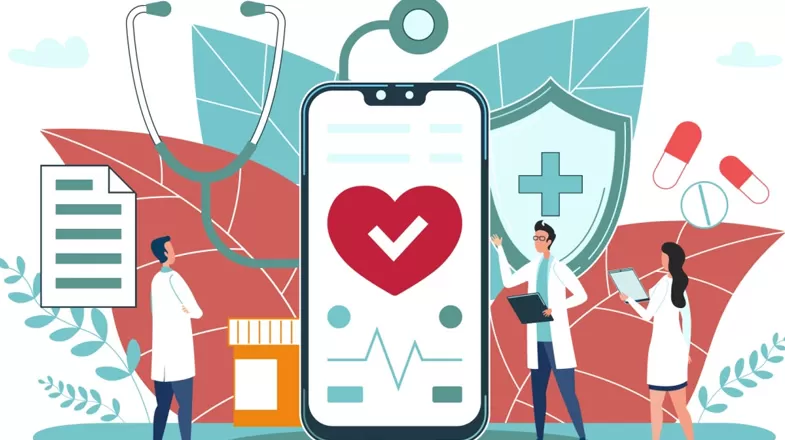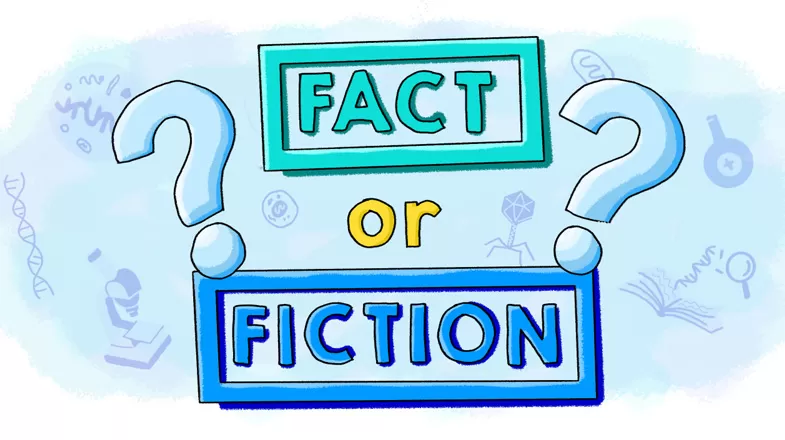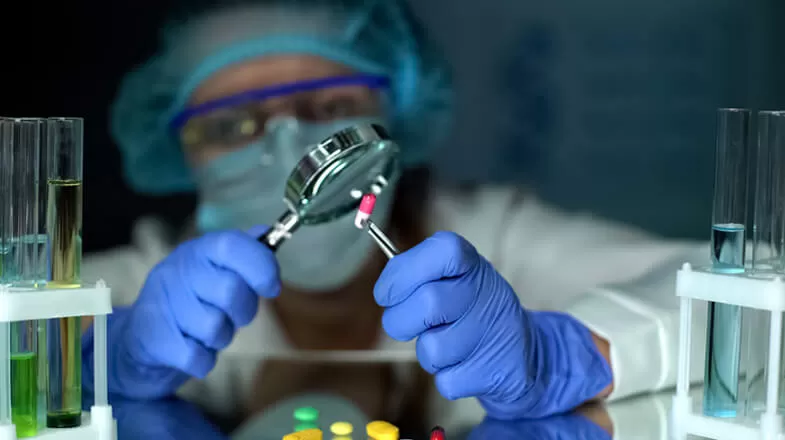Pfizer Responds to Misinformation & Disinformation
- Is Pfizer conducting vaccine clinical trials in children in Ukraine?
Pfizer is not conducting vaccine clinical trials in pediatric populations in the Ukraine.
- Does the COVID-19 vaccine cause autism spectrum disorder (ASD)?
There is no known link between COVID-19 vaccines and the occurrence of ASD. With hundreds of millions of doses of COVID-19 vaccines from BioNTech and Pfizer administered globally, the benefit-risk profile of our vaccines remains positive for all authorized indications/uses and age groups. Additionally, numerous studies have previously evaluated the safety of vaccines and have found no relationship between vaccines and ASD.17
- Is there data to suggest that the Pfizer-BioNTech COVID-19 vaccine causes mycoplasma pneumonia?
There are no data to suggest that Pfizer and BioNTech’s vaccines cause mycoplasma pneumonia. With hundreds of millions of doses of Pfizer-BioNTech COVID-19 vaccines administered globally, the benefit-risk profile of our vaccines remains positive for all authorized indications and age groups.
- Are COVID-19 vaccine heart issues common?
No, heart issues caused by receiving the COVID-19 vaccine are not common, but have rarely been observed after COVID-19 vaccination according to the Centers for Disease Control and Prevention (CDC). Post-marketing data with authorized or approved mRNA COVID-19 vaccines demonstrate increased risks of myocarditis (inflammation of the heart muscle) and pericarditis (inflammation of the lining outside the heart), particularly within the first week following vaccination.16, 15 For Pfizer-BioNTech's COVID-19 vaccines, the observed risk is highest in males 12 through 17 years of age.”
Since June of 2021, mRNA vaccines have carried a warning for increased risk of risk of myocarditis and pericarditis. There have been updates to the risk information found in mRNA vaccine labeling information since that time to further clarify the observed risk.14
- Does the COVID-19 vaccine cause cancer?
No signs of DNA mutation or COVID-19 vaccine-induced cancer have been reported to date for the Pfizer-BioNTech COVID-19 vaccine. This refutes claims made on September 12, 2023 during a Pandemic Preparedness Listening Session hosted by the Senate Medical Affairs. During the session, the Committee heard remarks pertaining to the Pfizer-BioNTech messenger RNA (mRNA) COVID-19 vaccine, incorrectly stating that the vaccine could potentially impact a person’s DNA and be a theoretical cancer risk. There is no evidence to support these claims.
Specifically, these claims allude to SV40, which stands for Simian Virus 40, a naturally occurring DNA virus originating with monkeys. In the 1960s, some polio vaccines were found to be contaminated with infectious SV40 virus, exposing those receiving the contaminated vaccines to infectious virus. Infectious SV40 virus is not in the Pfizer-BioNTech COVID-19 vaccine. To make the spike mRNA in the COVID-19 vaccine, plasmid DNA is used as a building block, or what is called starting material. Non-infectious fractions of a SV40 sequence are present in the starting material used by Pfizer and BioNTech. The DNA starting material does not contain oncogenes, which are genes that may have the potential to cause cancer. Many vaccines contain small amounts of DNA, otherwise known as residual DNA, for which regulatory authorities have established limits. As is required for all vaccines, the amount of residual DNA present in the Pfizer-BioNTech COVID-19 vaccine is within the amount permitted by standard regulatory guidance.
- Was the COVID-19 vaccine only tested on 8 mice?
The original Pfizer-BioNTech COVID-19 vaccine (introduced in 2020) underwent extensive human clinical trials prior to FDA authorization.
Global regulatory authorities agree that, in order to more closely match currently circulating strains of SARS-CoV-2, vaccines addressing COVID-19 strain changes should require only pre-clinical and manufacturing data when seeking authorization. This is because updated vaccines designed for new variants use the same vaccine technology as the original vaccine. Ongoing human clinical trials and real-world evidence continue to demonstrate the safety and efficacy of mRNA COVID-19 vaccines among hundreds of millions of adults and children around the world.
Data collected prior to the start of clinical trials, including data from testing on mice, has reliably predicted the response in humans across several COVID-19 variant vaccines (including the wild-type virus, Omicron BA.1, and Omicron BA.4/BA.5). This is the same process by which the Omicron BA.4/BA.5-adapted bivalent vaccine was studied and authorized for both adults and children.
Pfizer’s updated COVID-19 vaccine, designed for the Omicron XBB.1.5 subvariant (Kraken) only differs from earlier COVID-19 vaccines in that it contains mRNA coding for the spike protein of a different SARS-CoV-2 sublineage. A clinical study of this vaccine in humans is fully enrolled, and data are expected in late 2023.
- Can the COVID-19 vaccine cause Vaccine-Acquired Immune Deficiency Syndrome (VAIDS)?
Vaccine-Acquired Immune Deficiency Syndrome (VAIDS) is a term primarily used on social media and is not a condition that is recognized by expert medical communities. COVID-19 vaccines work by triggering the body’s natural immune response. According to the Centers for Disease Control and Prevention (CDC), “There is no scientific evidence that COVID-19 vaccines weaken or impair the immune system.” Further, the CDC notes that there is no relationship between COVID-19 vaccination and human immunodeficiency virus (HIV) or acquired immunodeficiency syndrome (AIDS).13
- Does Albert Bourla want to “reduce the number of people in the world by 50%”?
At the World Economic Forum in Davos in 2022, Albert Bourla said, “I think that is really fulfilling of a dream that we had, together with our leadership team when we started in '19, the first week we met in January of '19 in California to set up the goals for the next five years. And one of them was by 2023, we will reduce the number of people in the world that cannot afford our medicines by 50%.”
- Is it true that Albert Bourla didn’t get the COVID-19 vaccine?
Albert Bourla has been fully vaccinated with the Pfizer-BioNTech COVID-19 vaccine. The misinformation surrounding his vaccination status stems from comments he made during the earliest days of the vaccine, before he was vaccinated. While he was eager to show the world that he had confidence in the vaccine, he didn’t want to step in front of those who needed it more and chose to follow the CDC’s guidelines regarding which Americans should receive the vaccine first based on age and pre-existing conditions. He received his first dose on Feb. 16, 2021, and has remained up-to-date with vaccinations as they have become available.
- Are there bad batches of the COVID-19 vaccines?
Pfizer’s manufacturing practices adhere to strict regulatory requirements that ensure the quality, safety and effectiveness of the COVID-19 vaccine. Regulatory agencies across the globe have authorized the use of our COVID-19 vaccine and batches that meet authorized specifications are released for patient administration.
Read more about vaccine manufacturing regulations from the Food and Drug Administration (FDA) and storage and handling guidelines and expiration dates from the Centers for Disease Control and Prevention (CDC).
- Are rumors of Pfizer mutating viruses true?
We do not, and never would, engage in research to create or adapt viruses with the intention of making them more contagious or harmful to people. This is disinformation. We undertake research to analyze the ability of our vaccines to help protect or treat disease and are committed to sharing the data we collect.
- Why was the Pfizer vaccine not tested for transmission?
The authorizations and approvals of our COVID-19 vaccines are based on extensive data sets that showed our vaccines are safe and effective at preventing illness, as well as reducing severe illness and hospitalization, and did not hinge on whether the vaccines block transmission. We are constantly monitoring and adapting to a changing landscape and continue to apply what we’ve learned from ongoing data collection and our track record of developing vaccines and treatments that have saved and improved millions of lives.
- Is there graphene oxide in the COVID-19 vaccine?
No. Graphene oxide is not an ingredient in the Pfizer-BioNTech COVID-19 vaccine. In a document submitted to the U.S. Food and Drug Administration (FDA) titled “Structural and Biophysical Characterization of SARS-CoV-2 Spike Glycoprotein (P2 S) as a Vaccine Antigen,” Pfizer indicated the use of graphene oxide during development phases to help determine the structure of the COVID-19 vaccine. However, graphene oxide it is not listed as nor has it been used as an ingredient in the vaccine itself.
- Does the COVID-19 vaccine impact fertility?
As with many medicines, some studies show some women experience small, temporary menstrual cycle changes following COVID-19 vaccination. There is no evidence that the vaccine causes infertility.12
- If the COVID-19 vaccine is effective, why do I need additional shots?
Several vaccines require several shots to help provide immunity against viruses, including the annual flu shot and Tdap for tetanus, diphtheria, and acellular pertussis. For COVID-19, an additional shot is a way to remind your body of the instructions it received from your original vaccination series, and a way to provide new instructions for new variants of the virus.11
At the onset of the pandemic, we were dealing with a virus that we knew very little about at the time and the data showed was highly infectious and deadly to many people. Since then, we have learned more, closely monitoring data that shows we are dealing with a virus that is highly mutative and unpredictable.10 Similar to how flu vaccines are updated each year, we are ready to make updated vaccines that match circulating COVID strains. This is possible because the safety and efficacy profile of our COVID-19 vaccines are well understood following administration to hundreds of millions of individuals around the world over the past three years.
- Does Pfizer use microchips in vaccines?
No. There are no microchips or any other tracking devices within any Pfizer vaccine, including the COVID-19 vaccine.
- Does an mRNA vaccine change your DNA?
No, mRNA vaccines do not alter your DNA. In fact, they don’t interact directly with your DNA at all.9
- Did the FDA unauthorize the Pfizer-BioNTech COVID-19 vaccine?
On April 18, 2023, the FDA expanded the Emergency Use Authorization (EUA) for bivalent COVID-19 vaccines. This expansion allowed individuals 5 years and older to receive the bivalent vaccines can now as an initial single-dose vaccinations for those who have not yet been vaccinated. It also authorized, the bivalent vaccine for children 6 months through 4 years of age to receive up to 3 doses depending on the child’s COVID-19 vaccine vaccination history. Lastly, the expansion authorized additional dose(s) for individuals 5 years and older with certain immunocompromised conditions. Because of these changes, the original monovalent COVID-19 vaccines were no longer necessary, and therefore no longer authorized by the FDA.8
- What is mRNA and how is it used in vaccines?
Messenger ribonucleic acid, or mRNA, is a molecule that contains instructions that directs cells to make a protein that can help fight viruses. Learn more about 6 vaccine technologies and mRNA technology itself.
- Is Pfizer purposely mutating the COVID-19 virus?
No. In the ongoing development of the Pfizer-BioNTech COVID-19 vaccine, Pfizer has not conducted gain of function or directed evolution research. Working with collaborators, we have conducted research where the original SARS-CoV-2 virus has been used to express the spike protein from new variants of concern. This work is undertaken once a new variant of concern has been identified by public health authorities. This research provides a way for us to rapidly assess the ability of an existing vaccine to induce antibodies that neutralize a newly identified variant of concern. We then make this data available through peer reviewed scientific journals and use it as one of the steps to determine whether a vaccine update is required. Read more: Pfizer Responds to Research Claims
- Did the Zantac litigation apply to Pfizer products?
No. Pfizer sold Zantac only between 1998 and 2006, and the withdrawal of Zantac products from the market in 2019 and 2020 did not involve any Pfizer products. Read more: Pfizer Statement on Zantac Litigation
- Did Albert Bourla resign from Pfizer?
No. Albert Bourla remains the Chairman and Chief Executive Officer of Pfizer.
- What is the difference between misinformation and disinformation?
The primary difference lies in the intent of the person sharing the information. The CDC defines misinformation as “false information shared by people who do not intend to mislead others” and disinformation as “false information deliberately created and disseminated with malicious intent.”1
- How can I tell if information is true?
The World Health Organization (WHO) recommends taking seven steps to know whether you can trust what you’re reading.2
- Assess the source
- Go beyond headlines
- Identify the author
- Check the date
- Examine the supporting evidence
- Check your biases
- Turn to fact-checkers
- What are the side effects of mRNA COVID-19 vaccines?
Side effects may vary depending on the individual and which vaccine is administered. Be sure to consult a healthcare provider to make decisions that are right for your medical history.
Safety is a top concern for all of us and Pfizer takes reports of side effects that are potentially associated with our COVID-19 vaccines very seriously. While hundreds of millions of people have taken the vaccine safely, it is important to note that every medicine—and vaccine—has side effects.7 These side effects are rigorously monitored in clinical trials to ensure the benefits outweigh the risks.6
More detailed information is available on the CDC’s Possible Side Effects After Getting a COVID-19 Vaccine page. Please visit our Coronavirus Resources page for more information about Pfizer’s work on COVID-19.
- Who owns Pfizer?
Pfizer has been a publicly traded company since June 22, 1942, when 240,000 shares of new common stock were offered to the public. Read more about Pfizer’s History, Board Members, Executive Leadership, and Investor Relations.
- What are Pfizer’s official social media pages?
True Stories of Medical Misinformation
On October 30, 1938, CBS Radio aired a series of reports describing a Martian invasion. It turned out to be a dramatization by Orson Welles of H.G. Wells’ science-fiction novel “War of the Worlds.” And the day after the broadcast, legitimate news outlets across the United States reported that real mass hysteria was caused by the broadcast. The problem is, according to modern accounts, it isn’t true and it never was. That is how powerful and potentially dangerous misinformation can be. After 85 years, the myth of a panic that never was persists, even with ample access to the truth.5
So when misinformation about healthcare enters the public discourse, the result can be more than bizarre. It can be dangerous, causing confusion and instilling mistrust that could keep people from getting much-needed help.
“Health misinformation is not a recent phenomenon,” according to an advisory from the U.S. Surgeon General. “In the late 1990s, a poorly designed study, later retracted, falsely claimed that the measles, mumps, rubella (MMR) vaccine causes autism. Even after the retraction, the claim gained some traction and contributed to lower immunization rates over the next twenty years.”4
Scientific knowledge saves lives. It is how we fight disease and help patients. It is how we encourage our loved ones and neighbors to take the best care of themselves and their health, and promote public health broadly.
Pfizer, as an established brand, is committed to being a source for credible and objective information about medical advancements and trailblazing science. We use our scientific resources and world-class experts to educate and inspire; to provide facts, news, and content that will inform and empower readers, and maybe even make the world a healthier place.
“Just a few days after the widespread coronavirus outbreak, unfounded rumors circulated on social media that drinking or gargling alcohol could prevent or cure COVID-19. Subsequently, hospitals encountered a spike in the referral of poisoning cases for the ingestion of industrial-grade ethanol, resulting in an unprecedented high death toll due to alcohol poisoning. As of April 20, 2020, at the time of writing this letter, 700 people have died as a result of ingesting denatured alcohol in an attempt to fight the novel coronavirus. This catastrophe has affected many cities throughout Iran and at least 3,100 people have been hospitalized.”3
From the earliest days of the pandemic, the world has been inundated with misinformation. The World Health Organization calls this phenomenon an “infodemic,” “a flood of information on the COVID-19 pandemic. Infodemiology is the study of that information and how to manage it.”2
What began with unhelpful, unhealthy, and sometimes fatal advice about how to prevent COVID-19 evolved into false information about scientifically developed COVID-19 vaccines and treatments that have been created in accordance with regulatory processes, such as the Food and Drug Administration (FDA) in the United States.
According to the Centers for Disease Control and Prevention (CDC), “Most misinformation and disinformation that has circulated about COVID-19 vaccines has focused on vaccine development, safety, and effectiveness, as well as COVID-19 denialism.”1
Resources
- References
- The Myth of the War of the Worlds Panic. Salon. https://slate.com/culture/2013/10/orson-welles-war-of-the-worlds-panic-myth-the-infamous-radio-broadcast-did-not-cause-a-nationwide-hysteria.html. Published October 28, 2013. Accessed April 19, 2023.
- Rao, T. S., & Andrade, C. (2011). The MMR vaccine and autism: Sensation, refutation, retraction, and fraud. Indian Journal of Psychiatry, 53(2), 95–96. 10.4103/0019-5545.82529.
- Mehrpour, O., Sadeghi, M. Toll of acute methanol poisoning for preventing COVID-19. Arch Toxicol 94, 2259–2260 (2020). https://doi.org/10.1007/s00204-020-02795-2.
- Let’s flatten the infodemic curve. World Health Organization. https://www.who.int/news-room/spotlight/let-s-flatten-the-infodemic-curve. Published October 21, 2020. Accessed April 21, 2023.
- How to Address COVID-19 Vaccine Misinformation. Centers for Disease Control and Prevention. https://www.cdc.gov/vaccines/covid-19/health-departments/addressing-vaccine-misinformation.html. Updated November 3, 2021. Accessed April 19, 2023.
- Myths and Facts about COVID-19 Vaccines. Centers for Disease Control and Prevention. https://www.cdc.gov/coronavirus/2019-ncov/vaccines/facts.html. Last Updated February 16, 2023. Accessed April 19, 2023.
- Coronavirus (COVID-19) Update: FDA Authorizes Changes to Simplify Use of Bivalent mRNA COVID-19 Vaccines. U.S. Food and Drug Administration. https://www.fda.gov/news-events/press-announcements/coronavirus-covid-19-update-fda-authorizes-changes-simplify-use-bivalent-mrna-covid-19-vaccines. April 18, 2023. Accessed April 21, 2023.
- Understanding How Vaccines Work. Centers for Disease Control and Prevention. https://www.cdc.gov/vaccines/hcp/conversations/understanding-vacc-work.html. Last Updated May 23, 2022. Accessed April 19, 2023.
- Markov, P.V., Ghafari, M., Beer, M. et al. The evolution of SARS-CoV-2. Nat Rev Microbiol 21, 361–379 (2023). https://doi.org/10.1038/s41579-023-00878-2
- COVID-19 Vaccines for People Who Would Like to Have a Baby. Centers for Disease Control and Prevention. https://www.cdc.gov/coronavirus/2019-ncov/vaccines/planning-for-pregnancy.html. Updated September 12, 2023. Accessed September 2023.
- Possible side effects from vaccines. Centers for Disease Control and Prevention. https://www.cdc.gov/vaccines/vac-gen/side-effects.htm. Published April 2020. Accessed July 2023.
- Development & Approval Process. U.S. Food and Drug Administration. https://www.fda.gov/drugs/development-approval-process-drugs. Published August 8, 2022. Accessed July 10, 2023.
- COVID-19 State of Vaccine Confidence Insights Report. The Centers for Disease Control and Prevention. https://www.cdc.gov/vaccines/covid-19/downloads/sovc_report24.pdf. Published March 28, 2022. Accessed October 4, 2023.
- Coronavirus (COVID-19) Update: June 25, 2021. U.S. Food & Drug Administration. https://www.fda.gov/news-events/press-announcements/coronavirus-covid-19-update-june-25-2021. Published June 25, 2021. Accessed November 14, 2023.
- Clinical Considerations: Myocarditis and Pericarditis after Receipt of COVID-19 Vaccines Among Adolescents and Young Adults. Centers for Disease Control and Prevention. https://www.cdc.gov/vaccines/covid-19/clinical-considerations/myocarditis.html. Last reviewed October 10, 2023. Accessed October 30, 2023.
- Use of mRNA COVID-19 Vaccine After Reports of Myocarditis Among Vaccine Recipients: Update from the Advisory Committee on Immunization Practices. Centers for Disease Control and Prevention. https://www.cdc.gov/mmwr/volumes/70/wr/mm7027e2.htm. Last reviewed July 8, 2021. Accessed October 30, 2023.
- Centers for Disease Control and Prevention, National Center for Emerging and Zoonotic Infectious Diseases (NCEZID). Autism and Vaccines. Atlanta, GA: Division of Healthcare Quality Promotion, CDC. Published December 1, 2021. Accessed on January 19, 2024. Available at: https://www.cdc.gov/vaccinesafety/concerns/autism.html.
Related Content
5 Ways to Avoid Falling for False Health Information Online
Raise your hand if you've ever typed your symptoms into a search engine.
Gene Therapy Myth Busting
The concept of gene therapy is fairly straightforward: deliver new copies of genes to patients’ cells to help prevent or treat a disease.
How To Identify Fake Medicines
Prescription medications in the United States tend to be safe, but you should still know how to identify fake medicines, especially if you’re buying online.



